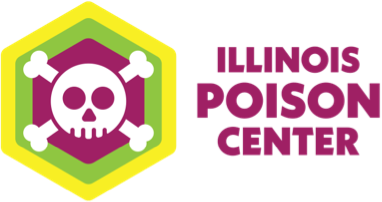Rodenticide
When fall arrives, rodents such as mice and rats seek out food and heat. Your home becomes an inviting place for both. Many people turn to rodent poison (also known as rodenticide) to get rid of the pests. Rodenticides are helpful, but not harmless. Before you put out rodenticide, review our safety tips below.
Rodenticide Safety Tips
Older rodenticides can contain highly toxic products like arsenic, white phosphorus, strychnine and thallium. Even a small taste of any of these substances may cause serious injury or even death. Do not use these products, and check with your local environmental or solid waste agency or health department on how to dispose of them.
Now, only four types of EPA-approved chemicals can be used in rodenticides: anticoagulants, bromethalin, cholecalciferol and zinc phosphide. Household products have low concentrations of these chemicals. Consumed in certain quantities, they can still be dangerous to humans and pets.
- Anticoagulants (also known as blood thinners) include brodifacoum, bromadiolone, chlorphacinone, difenacoum, difethialone, diphacinone and warfarin. These chemicals prevent blood clotting and cause internal bleeding and hemorrhaging. The antidote is vitamin K.
- Bromethalin affects the nervous system adversely by causing brain swelling and seizures.
- Cholecalciferol is vitamin D3. This vitamin is safe as a dietary supplement but toxic in large quantities. Toxic levels can cause death by cardiac arrest.
- Zinc phosphide is a poison that releases a toxic gas called phosphine when it comes in contact with liquids in the stomach. Phosphine gas can damage many internal organs including the lungs, heart, liver, kidneys and brain.
Please note: Exercise extreme caution while handling modern rodenticides. They are considered “safer” than those of decades ago but are still poisonous.
Rodenticide Tips from the Environmental Protection Agency:
- Always read and follow package instructions for use.
- Store rodent poisons in their original containers. Make sure the ingredients, directions for use and first aid steps are visible on the label.
- Never place the poison pellets in food containers, plates or bowls that could be mistaken for food by small children and pets. It is best to use tamper-resistant bait stations.
- Crawl around the areas where you plan to place baits. This may help you avoid placing the poison in areas accessible to children and pets. Teach children that rodent poison is dangerous and should never be played with, touched or eaten.
- Store rodenticides in a cool, dry place and in locked cabinets, out of sight and reach of children. Remember that baits sold in child-resistant packaging are not child-proof.
- Alert caregivers and family members about the placement and dangers of rodenticides.
- Dispose of old or expired baits properly. Do not pour leftover rodent poison into the toilet, garbage disposal, sewer or street drain.
- Do not recycle rodenticide containers unless your community recycling program has specific guidelines for doing so safely.
Preventing Rodents in the Home
Want to keep rodents out without using rodenticides? Start by patching any cracks or holes around the foundation of your home. You can also set up traps that don’t use chemicals, like sticky glue boards with a non-toxic adhesive.
IPC is here for you. Call us at 1-800-222-1222 if you have questions or suspect you or someone else has been exposed to a rodenticide.
For general questions about pesticides and pesticide safety, call the National Pesticide Information Center at 1-800-858-7378.
